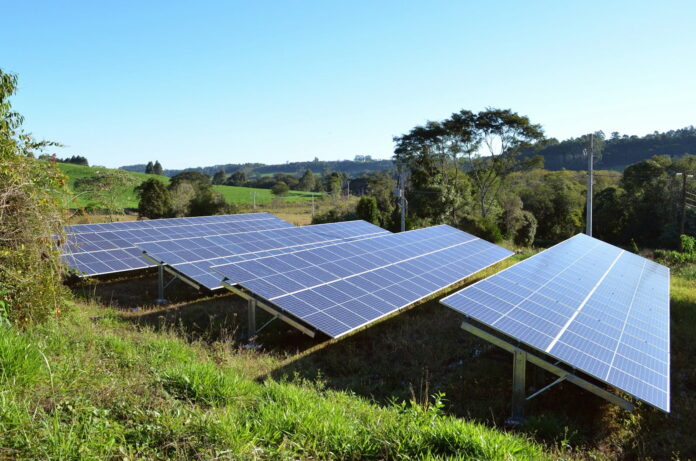In the quest for a sustainable future, green technology innovations are leading the charge. These ecological advancements are not only crucial for preserving our planet but also for creating a viable economic model that ensures long-term prosperity. Green tech innovations encompass a broad range of developments, from harnessing renewable energy sources and advancing energy storage solutions to eco-friendly transportation breakthroughs. Each of these areas plays a vital role in reducing our carbon footprint and paving the way for a cleaner, more sustainable world. As we delve into these green tech innovations, it becomes clear that the choices we make today will significantly shape the environment of tomorrow.
Harnessing Renewable Energy Sources
Renewable energy sources are at the forefront of the green tech revolution. Solar power, with its ever-increasing efficiency, is seeing widespread adoption not only in residential areas but also in large-scale solar farms. Innovations like bifacial solar panels, which capture sunlight from both sides, and floating photovoltaic systems on bodies of water, are pushing the boundaries of how we collect solar energy. Wind energy, too, is experiencing a surge in technological advancements. Larger and more efficient turbines are being developed, capable of harnessing energy even from low-wind environments. Offshore wind farms are becoming increasingly common, benefiting from stronger and more consistent winds at sea.
Transitioning to renewable sources, however, also requires overcoming intermittency issues. Here, geothermal energy provides a solution as a stable and continuous power source. Innovations in drilling technology have made it more feasible to tap into geothermal reservoirs, allowing for a reliable supply of heat and electricity. In areas with significant tidal movements, tidal energy harnesses the power of ocean currents, converting it into usable electricity. These methods of renewable energy collection are rapidly evolving, reflecting an increasing commitment to reducing reliance on fossil fuels and mitigating climate change impacts.
The future of renewable energy is also about integration. Smart grid technology enables the seamless incorporation of various renewable sources, balancing supply and demand. This grid modernization is vital for accommodating the unpredictable nature of some renewable energy sources and ensuring a stable energy supply. As we continue to innovate, the potential for renewable energy to meet a greater share of global energy needs grows exponentially, promising a greener and more sustainable future.
Advancements in Energy Storage Solutions
Energy storage is a critical component of the green tech ecosystem as it directly addresses the fluctuation in power generation from renewable sources. Lithium-ion batteries have dominated the market, but they are not without their drawbacks, such as limited resource availability and recycling challenges. In response, alternative battery technologies are being explored. Solid-state batteries, for instance, promise higher energy density and improved safety over traditional lithium-ion batteries. Research is also being conducted on flow batteries, which could offer longer life cycles and are particularly well-suited for large-scale energy storage.
Another promising area is the development of supercapacitors, which can charge and discharge electricity rapidly and withstand a large number of cycles. Their ability to quickly release large amounts of energy makes them an excellent option for applications that require immediate power, such as in grid stabilization or electric vehicles. Furthermore, innovations in materials science, such as graphene-based supercapacitors, are pushing the limits of what’s possible in energy storage.
Looking beyond batteries and supercapacitors, other novel methods for storing energy are emerging. For example, pumped hydro storage, which utilizes excess energy to pump water uphill into a reservoir, releasing it to generate electricity when needed, is a mature technology experiencing new interest. Additionally, compressed air energy storage and flywheel energy storage systems are being refined to offer efficient, scalable, and environmentally friendly alternatives. As these technologies develop, they will play a pivotal role in making renewable energy sources more reliable and accessible.
Eco-friendly Transportation Breakthroughs
Transportation is a significant contributor to global greenhouse gas emissions, making eco-friendly innovations in this sector particularly impactful. Electric vehicles (EVs) have become increasingly popular, with improvements in battery technology allowing for longer ranges and faster charging times. Automakers are also investing in the development of hydrogen fuel cell vehicles, which produce zero emissions at the point of use and can be refueled quickly. Both technologies represent a shift away from internal combustion engines and a step towards cleaner transportation.
Public transportation is also undergoing a green transformation. Electric buses and trains are becoming more prevalent in cities around the world, reducing urban air pollution and noise. In addition, bike-sharing programs and investments in cycling infrastructure encourage eco-friendly urban mobility. Innovations such as hyperloop and maglev trains offer the promise of high-speed, low-emission intercity travel, potentially reshaping long-distance travel by providing a sustainable alternative to air and road travel.
The future of eco-friendly transportation is not just about the vehicles themselves but also about how we use them. Car-sharing services and intelligent transportation systems aim to optimize traffic flow and reduce congestion, lowering overall emissions. Autonomous vehicle technology could further revolutionize the transportation sector by improving vehicle efficiency and reducing the need for individual car ownership. As these technologies advance, they contribute to a comprehensive approach to sustainable transportation, essential for achieving a greener future.
Green technology innovations are transforming our world, creating a more sustainable and eco-friendly future. By harnessing renewable energy sources, advancing energy storage solutions, and breaking new ground in transportation, we are witnessing a pivotal shift in how we interact with our environment. These innovations are not only essential for combating climate change but also for ensuring a thriving economy and a high quality of life for future generations. The journey towards sustainability is complex and multifaceted, but as green tech continues to evolve, the vision of a cleaner, more resilient planet becomes increasingly attainable. Each step forward in green technology brings us closer to a future where humanity lives in harmony with the Earth’s ecosystems, preserving its precious resources for generations to come.
